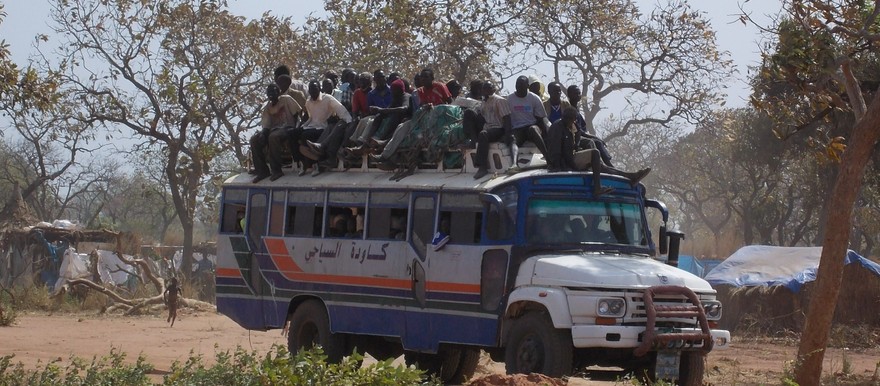More than 100 refugees arrived to Yida camp from the Nuba Mountains on a passenger bus on Friday, most of them from Umm Dorein and Heiban localities where warplanes are bombing day and night.
“It was only due to our luck that we found a vehicle coming this way,” said Angalo Ibrahim Suleiman from al-Nogra in Umm Dorein area. “There are others still on their way footing and others are waiting for transport, though it is lacking.”
Angalo explained that “conditions in Nuba Mountains are very desperate. The aerial bombardment and the shelling was the main problem that led me to escape from the war-torn area to this camp.”
Rihan Ismail, a woman from Heiban town, said she left home because the cultivation this year was bad.
She noted that a lot of people remaining in the Nuba Mountains are still aiming to make the journey southward but lack transportation.
Another man arriving on the same bus said that he came because there were no schools or food in the Nuba Mountains. Jelf Ismail from Umm Serdiba also pointed out that his village was bombed was last Sunday.
According to Ismail, aerial attacks on Umm Serdiba in one week alone killed four people, whom he identified as Mohamed Abu Hashim, a girl named Hanoya, and two women whom he did not know.
“Most of the Nubans are escaping because of the scenes that they have seen with their eyes,” noted Angalo.
Likewise the woman from Heiban said that the Antonov warplane “comes any time, in the afternoon, in the night. A lot of people died.”
Yida camp in northern South Sudan shelters more than 57,000 registered refugees, a figure that represents a downward revision of population estimates given last year by the UN Refugee Agency.
Over the last three months the cumulative monthly registration trend was 935 in October, 6628 in November and 4698 in December. The peak influx last year was in June when more than 23,000 people arrived to Yida.
UNHCR designates Yida a ‘settlement’ rather than an official refugee camp because it is considered too close to an international border.




